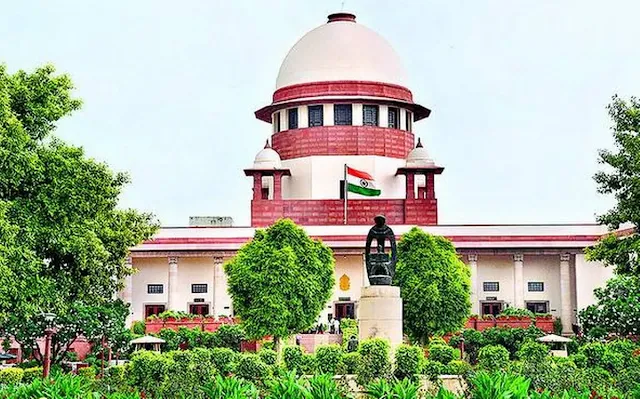Judicial Scrutiny of Hereditary Appointments in Public Service
The case in question revolved around Proviso (a) to Rule 5(7) of the Bihar Chaukidari Cadre (Amendment) Rules, 2014. This provision allowed retiring chaukidars to nominate a dependent relative for appointment in their place, effectively institutionalizing a system of hereditary succession within this public service role. The Patna High Court found this proviso to be in violation of Articles 14 and 16 of the Indian Constitution, which guarantee equality before the law and equal opportunity in public employment, respectively. Consequently, the High Court declared the rule unconstitutional, even though its validity had not been formally contested in the proceedings.
Supreme Court's Affirmation of High Court's Decision
The Bihar Rajya Dafadar Chaukidar Panchayat (Magadh Division), representing the interests of the chaukidars, challenged the High Court's ruling in the Supreme Court. The appellants argued that the High Court had exceeded its jurisdiction by declaring the rule unconstitutional without a formal challenge to its validity. However, the Supreme Court upheld the High Court's decision, emphasizing that the judiciary has the authority to assess the constitutionality of legislative provisions, especially when they pertain to fundamental rights. The Court noted that expecting the petitioners to challenge the very rule under which they sought relief would be unreasonable.
Implications for Public Employment Policies
The Supreme Court's observations highlight a critical issue in India's public employment landscape: the persistent inadequacy of government job creation to meet the aspirations of eligible candidates. This scarcity not only hampers the employment prospects of qualified individuals but also raises concerns about the equitable distribution of public service opportunities. The Court's ruling against hereditary appointments underscores the necessity for merit-based recruitment processes that uphold constitutional principles of equality and fairness.
Constitutional Mandate for Equal Opportunity
Articles 14 and 16 of the Indian Constitution serve as the bedrock for ensuring non-discrimination and equal opportunity in public employment. By striking down provisions that facilitate hereditary succession in government positions, the judiciary reinforces the imperative that public offices should be accessible to all eligible citizens, irrespective of their familial ties. This approach aims to dismantle entrenched systems of privilege and promote a more inclusive and meritocratic public sector.
Broader Socio-Economic Context
The Court's remarks also shed light on the broader socio-economic challenges facing India. Despite significant economic growth and development since independence, the public sector has struggled to generate sufficient employment opportunities to accommodate the burgeoning workforce. This shortfall has implications for social mobility and economic equity, as government jobs often provide stable income and social security benefits that are less prevalent in the private sector.
Challenges in Public Sector Employment
Several factors contribute to the limited availability of public sector jobs in India. Budgetary constraints often limit the expansion of government departments and agencies. Additionally, efforts to modernize and digitize public services have led to increased efficiency but reduced the need for a large workforce. Furthermore, policies aimed at reducing the fiscal deficit sometimes result in hiring freezes or reductions in public sector employment.
Impact on Aspirants and Society
The scarcity of government jobs has profound effects on job seekers and society at large. Many individuals invest significant time and resources in preparing for competitive examinations, only to face limited prospects due to the dearth of vacancies. This situation can lead to frustration and disillusionment among the youth, potentially resulting in social unrest. Moreover, the perception of limited opportunities in the public sector may drive talented individuals to seek employment abroad, leading to a brain drain that hampers national development.
Judiciary's Role in Upholding Meritocracy
The Supreme Court's decision reflects the judiciary's proactive role in ensuring that public employment practices adhere to constitutional mandates. By invalidating provisions that allow for hereditary appointments, the Court reinforces the principle that public sector jobs should be awarded based on merit rather than lineage. This stance is crucial for maintaining public confidence in the fairness and integrity of government recruitment processes.
Policy Recommendations
Addressing the issue of limited public sector employment opportunities requires a multifaceted approach. Policymakers should consider strategies such as:
-
Expanding Public Sector Opportunities: Investing in sectors that require significant human resources, such as education, healthcare, and public infrastructure, can create more government job opportunities.
-
Enhancing Skill Development: Aligning educational curricula with the needs of both the public and private sectors can equip job seekers with relevant skills, improving their employability across various industries.
-
Promoting Public-Private Partnerships: Collaborations between the government and private sector can lead to job creation in areas like research and development, technology, and manufacturing.
-
Implementing Transparent Recruitment Processes: Ensuring that all public sector recruitment is conducted transparently and based on merit can restore faith in the system and encourage more individuals to pursue government careers.
Conclusion
As India approaches 80 years of independence, the Supreme Court's observations serve as a poignant reminder of the ongoing challenges in public sector employment. The ruling against hereditary appointments is a step toward fostering a more equitable and merit-based system. However, addressing the broader issue of job scarcity requires concerted efforts










0 Comments
Thank you for your response. It will help us to improve in the future.